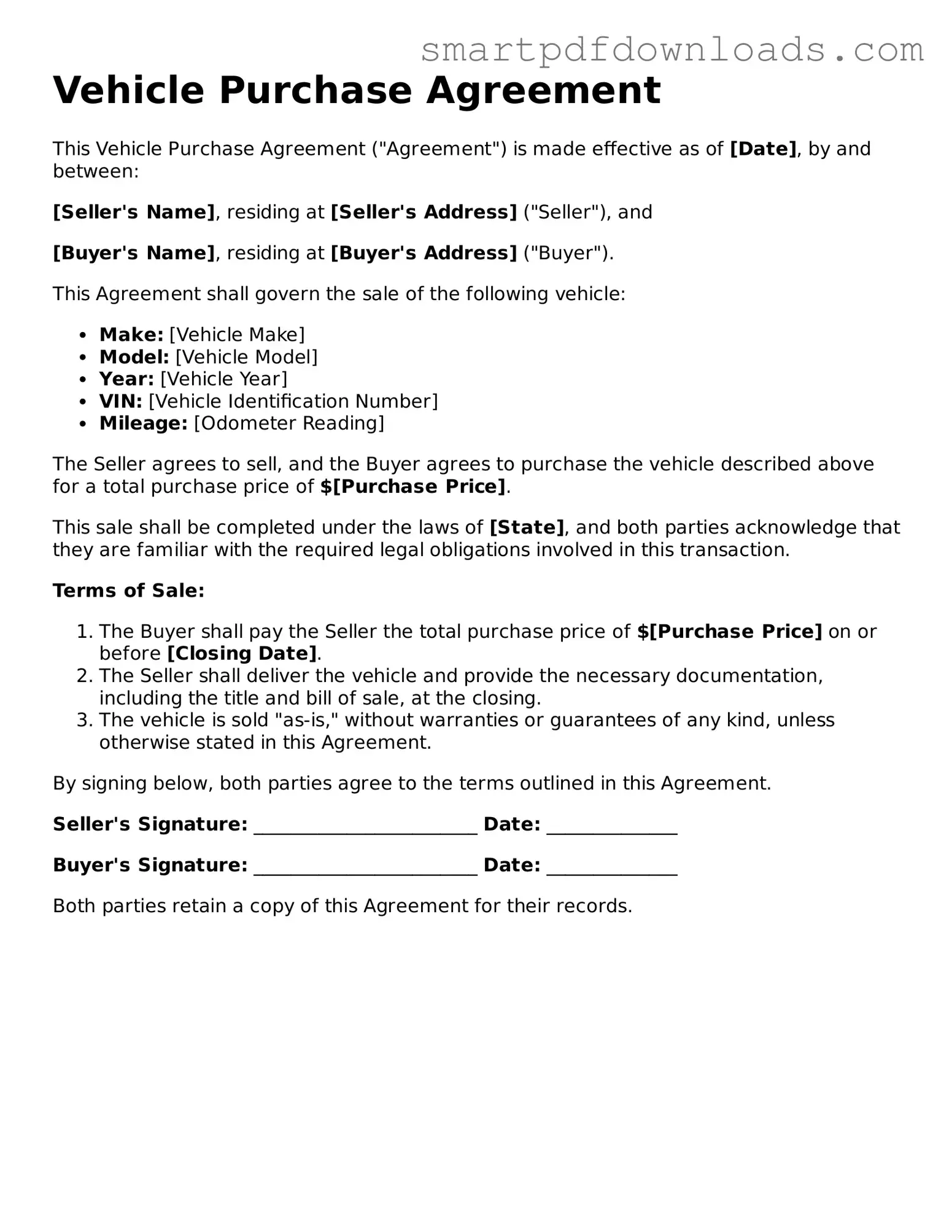Free Vehicle Purchase Agreement Form
A Vehicle Purchase Agreement is a legal document that outlines the terms and conditions of a vehicle sale between a buyer and a seller. This agreement serves to protect both parties by detailing the specifics of the transaction, including the purchase price, vehicle condition, and any warranties. Understanding this form is essential for anyone looking to buy or sell a vehicle, ensuring a smooth and clear transaction.
Edit Vehicle Purchase Agreement Online

Free Vehicle Purchase Agreement Form
Edit Vehicle Purchase Agreement Online

Edit Vehicle Purchase Agreement Online
or
⇓ PDF File
Finish the form and move on
Edit Vehicle Purchase Agreement online fast, without printing.